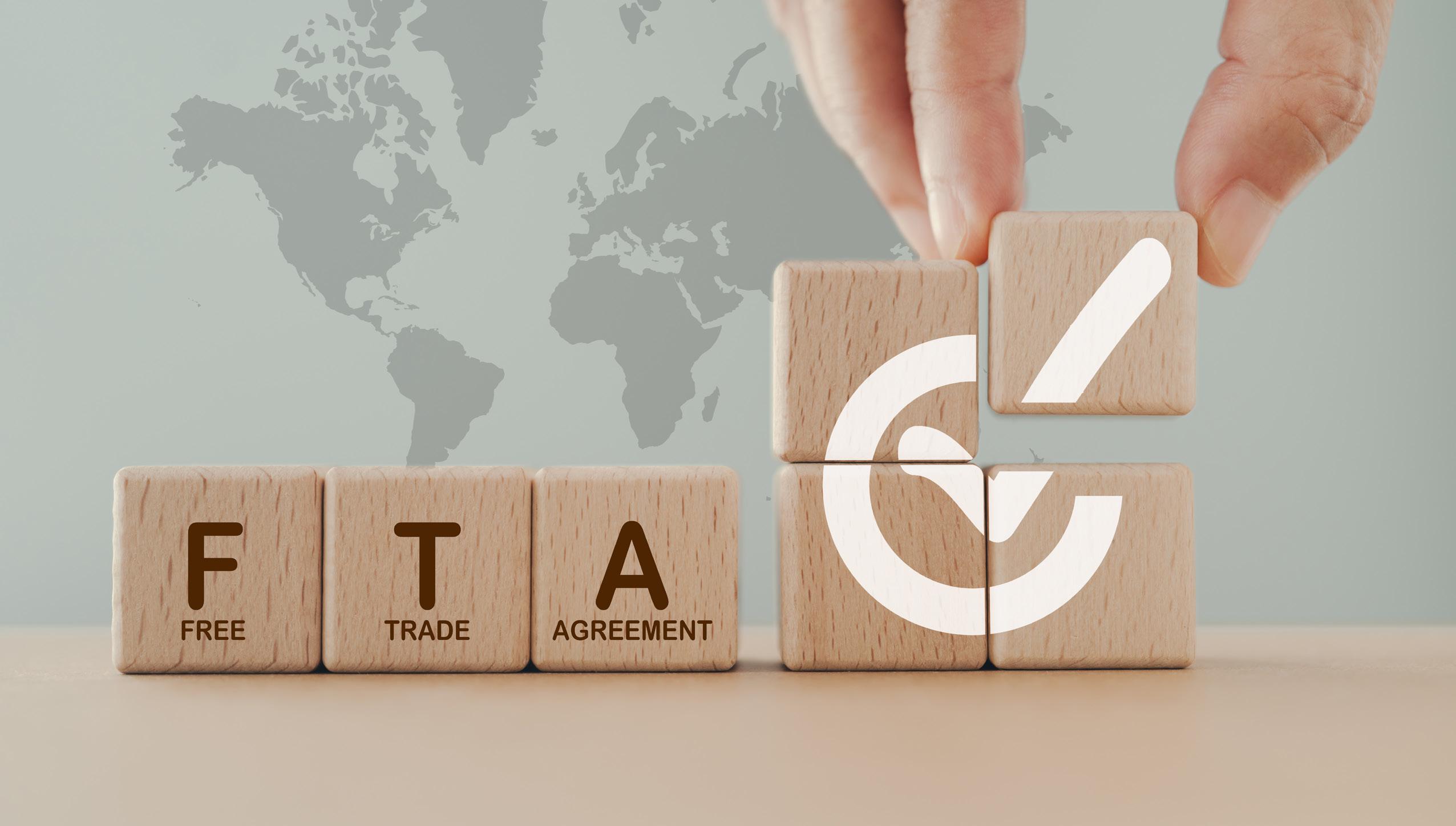
4 minute read
Update on the UK-GCC Free Trade Agreement
By Raj Pahuja, HRC Law
The United Kingdom and the countries of the Gulf Cooperation Council (namely Bahrain, Kuwait, Oman, Saudi Arabia, the UAE and Qatar) have been embarking on an ambitious exercise to enter into a free trade agreement (FTA) between each other.
Negotiations have been ongoing, and the sixth round of negotiations took place earlier in the year. Discussions are advanced between both sides and a draft treaty text has been shared. We understand that technical discussions were held across 21 policy areas over 30 sessions.
An FTA will be a substantial economic opportunity for all and a significant moment in the UK-GCC relationship. Total trade was worth an estimated £59 billion according to latest figures and with the advent of an FTA, this is likely to grow.
The UK Department of Business Trade (DBT) has been working tirelessly in trying to agree a deal which will be in the best interests of the British people and the UK economy. In trying to understand the issues and needs of UK businesses, the DBT has been holding a series of roundtable discussions with various businesses in the UK, including HCR Law. The writer was recently invited to attend one of these roundtable discussions with the DBT and met with them separately to find out exactly what the FTA can offer UK businesses.
We must not underestimate the challenges ahead for the UK in trying to negotiate and agree a comprehensive FTA with six sovereign states. For the FTA to have any real “teeth” it needs to cover a range of issues and must deal with the interests of a number of stakeholders. It is too early to say whether the FTA will achieve this, but we understand that the FTA will include 25 chapters and is to be modelled on similar FTAs that the UK has recently negotiated, meaning that there is real hope that the FTA will go some way to making trade between the UK and the GCC much easier.
There are a number of benefits associated with free trade agreements, the aim of which is to essentially make it easier and cheaper to do business in another country.
A free trade agreement could include:
• lower or removed tariffs;
• investment opportunities;
• improved market access; and
• enhanced protection for business.
The benefits differ depending upon what is agreed in each free trade agreement.
What can we expect the UK-GCC FTA to include? We expect, although matters may change, that the UK-GCC FTA will include, among others, specific chapters relating to:
• Liberalisation of tariffs on certain exported goods;
• Trade remedies and technical barriers to trade;
• Rules of origin procedures;
• Customs procedures;
• Trade in services;
• Investment;
• Recognition of professional qualifications;
• Intellectual property;
• Government Procurement; and
• SMEs.
Other chapters will be included, and it is currently unclear how far they will go. We understand that UK businesses have raised concerns about data transfers and data protection generally and it is understood that this will be addressed at a high level. It is unclear what, if any, text will be included in the FTA.
The FTA acts as a framework of key terms. We shouldn’t forget that individual countries will still be able to continue to apply their own laws and whilst the FTA may be in place, any business looking to do business in the GCC will also need to follow the laws and procedures of the country that they are specifically looking to do business in. That could mean that a UK business is required to register or incorporate in a particular country in which it is looking to do business in or for example, comply with applicable rules on employment etc.
The FTA will certainly go some way to removing barriers of trade between the UK and the GCC, but it will not remove all the barriers and some work may need to be done at a bilateral level to achieve further success on that front.
HCR Law are closely following the developments of the negotiations and look forward to providing further updates as and when available. Many of our lawyers have worked and lived in the GCC and we have skill and expertise in being able to advise UK based clients on doing business in the GCC.










